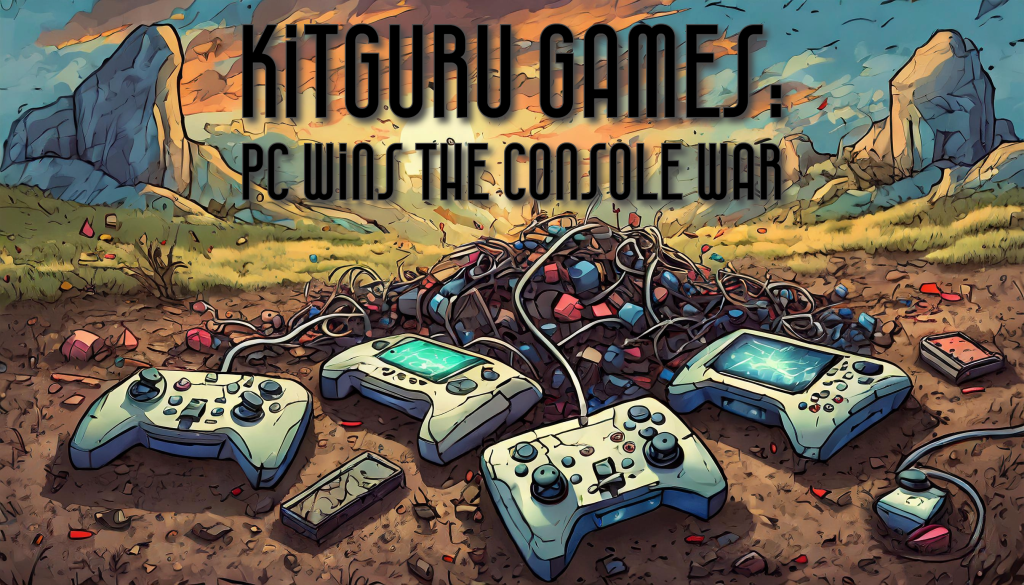Since the launch of the Xbox One, there has been a grey cloud hanging over the Xbox brand. Console sales fell well behind PlayStation and while Microsoft has managed to win over some with Game Pass, console hardware sales are still far below what we would expect considering the amount of money Microsoft has spent acquiring studios and publishers since 2018. Due to this, it feels like we see doom and gloom rumours around Xbox every few months. Things came to a head over the weekend with the revelation that Xbox games may go fully multi-platform.
In recent weeks, there have been whispers about certain Xbox games releasing on other consoles, like the PS5 and Nintendo Switch. At first, it sounded like it would just be the likes of Hi-Fi Rush and Sea of Thieves, opening these games up to a wider player base. It was also claimed that Microsoft would address this strategy shift in the Spring as part of a new set of announcements.
Over the weekend, the scope of this strategy changed significantly. Now, it is being rumoured that even Xbox's biggest franchises will be going multi-platform, with games like Starfield and Indiana Jones to arrive on PS5. As we already know, the biggest Activision Blizzard titles will also remain multi-platform, something that Microsoft announced prior to acquiring the company in late 2023.
Xbox-focused podcaster, xCloudTimdog, who has relationships with a number of Xbox employees and executives, summarised a lot of this in a recent video, sharing that Xbox missed its hardware sales targets in late 2023, despite holiday season discounts. This in turn has led to the CFO wanting to switch strategies and bring more games to competing consoles. Exactly how this would help Xbox hardware sales is entirely unclear and for now, it sounds like Microsoft does indeed plan to continue selling consoles, even with major games potentially becoming available on other platforms.
Why would you buy an Xbox still if all of their games are available elsewhere? Well, odds are Sony isn't going to allow Game Pass on PlayStation, so that will be Microsoft's big draw. Buy the console with no exclusive games and use Game Pass to play the latest titles at a cheaper cost, versus buying them at £70 a pop on PS5. The other pillar here would be Play Anywhere, allowing games to be played across both Xbox and PC for those who like to switch between devices.
Many Xbox fans have already flooded forums and social media with complaints about this. A poll conducted by WindowsCentral's Jez Corden shows that the majority of fans are no longer confident investing in the Xbox ecosystem given the rumours swirling around over the weekend. The poll has almost 40,000 votes, which is a very significant sample size. The message seems clear, most of the ‘core' gamers would rather own a PS5 if they are going to get to play Xbox games there anyway. This way, you get the best of both worlds, with access to Xbox games, as well as the PlayStation exclusives that launch exclusively on the console. However, as I'll explain further down in this article, I don't think PlayStation consoles as we know them today are going to last forever either.
If Microsoft really is throwing in the towel on exclusives and going multiplatform, then Xbox hardware makes little sense unless it is licensed out. Like the Steam Machines of old, perhaps Microsoft will pursue a licensing model in which partners make their own Xbox systems at different performance/price levels and load it with an OS that boots into a gaming-focused UI that works well with a controller.
With all of these issues in mind, it would seem that Xbox may transform itself in a similar fashion to SEGA. Once upon a time, SEGA was one of the biggest games console makers, but with tough competition from PlayStation and Nintendo, the company decided to ditch hardware entirely, instead opting to focus all of its efforts on creating games for the most popular systems. Nowadays, SEGA is one of the biggest multi-platform publishers around.
Would this be the best move for Microsoft as a whole? Historically, Microsoft has always been a software-focused company and when Satya Nadella took over the company as CEO, he also directed a new focus on services too. This has led to things like Microsoft Azure and Office 365, which have been hugely successful for Microsoft. By dropping hardware from the equation and switching to multi-platform game development and publishing, Microsoft would stand to make a lot of money and would start to reap the rewards pretty swiftly. After all, there are a significant number of customers on PlayStation who have never owned an Xbox and may have never even played Halo or Gears of War.
Going by the PS4's install base, that's well over 100 million new customers to sell games to. Sony will get its platform cut, but Microsoft may be able to negotiate better terms to get it below 30%, as we know some publishers have managed to do exactly that, including Activision Blizzard.
Additionally, this change in strategy could also open the door for Microsoft to acquire more studios in the future without raising red flags at regulators. One of the key arguments used by the FTC against the Microsoft-Activision merger is that Microsoft could leverage IP like Call of Duty to run Sony out of business by making content exclusive. If there is no Xbox and there are no exclusives, then it may be able to get away with even more high-profile studio acquisitions.
However, losing one of the pillars of the console market could also have major downsides. Microsoft has managed to push Sony into offering a better subscription service, and was also instrumental in forcing Sony's hand in allowing features like cross-play and cross-save in games. Without a major third console in the market, Sony would have more market power than it already has. The company has never been shy about throwing its weight around, as we saw with the Sony-led shift towards £70 games on new-gen consoles. While some publishers held out for a while, eventually, everyone began charging Sony's new standard price for games and this has had an effect on PC game pricing too.
Sony could also backtrack on its multi-platform efforts and go back to releasing full exclusives, as there would no longer be a competing Xbox. I think this scenario is unlikely though, as many Xbox gamers may opt to go to PC instead, a sensible move due to concerns around game preservation and continued access to your library.
While the gut reaction to this news is to wonder why, especially given Microsoft's investment in studios over the past several years, I actually think this is a smart move. We are moving towards a future where locked-down console hardware that sells at a loss no longer makes sense.
Creating games is becoming increasingly expensive and when you add on overhead for covering hardware losses, having a PC-focused games market simply makes more sense. Let the likes of AMD, Intel and Nvidia worry about hardware instead and focus on shipping polished software that can be accessed locally on a PC, or on any device via the cloud.
I believe this is where the gaming market is heading. Sony has already realised it needs to get on board with multi-platform releases to reach a wider audience and has been investing in cloud for well over a decade. If Microsoft goes down this path and sees huge gains, Sony will likely follow. There is no reason a PC can't play Xbox or PlayStation games. There's no reason you can't license out that brand name to a company like Corsair and turn the Corsair One mini-PC into a ‘PlayStation' or an ‘Xbox', complete with a special full-screen UI designed for a TV and controller that displays your library and different stores/launchers.
I understand concerns around game optimisation here, as developers tend to squeeze as much performance as possible out of consoles. However, if there are no consoles and we're all gaming on PC, or a PC in the cloud, then developers will have to focus all efforts on optimisation and scalability to reach the broadest amount of players. To help avoid issues with players buying games they can't feasibly run on the hardware they have, a store page warning can be added to let a player know that their PC might not be able to run a game reliably, before pointing them to the hardware requirements section. Additionally, a cloud streaming option can be offered as part of a continued ‘PlayStation+' or ‘Xbox Game Pass Ultimate' subscription. This cloud streaming option could also pop up if a user runs out of local storage space, or it could be offered once a game starts installing, so you can jump in faster while the game installs locally.
In this scenario, we as consumers would be in greater control of our hardware, we would have greater access to games and the god-forsaken console war would finally come to an end. It would mark a generational shift in how the games market functions but I think it is the shift that makes the most sense.
Discuss on our Facebook page, HERE.
KitGuru Says: A lot of people have been quick to balk at the idea of Xbox games going multi-platform, but the fact is, PlayStation gamers will buy them, as will Nintendo gamers, which would be a win for the Microsoft Gaming business. I doubt Sony wants to keep making locked-down, loss-leading consoles forever either. Let's just get this over with and go back to PC gaming.
 KitGuru KitGuru.net – Tech News | Hardware News | Hardware Reviews | IOS | Mobile | Gaming | Graphics Cards
KitGuru KitGuru.net – Tech News | Hardware News | Hardware Reviews | IOS | Mobile | Gaming | Graphics Cards



